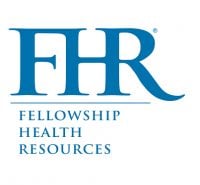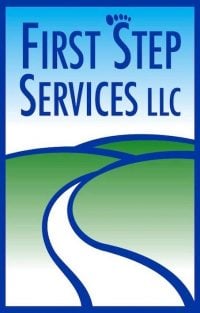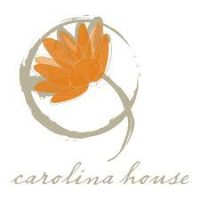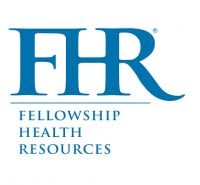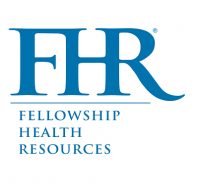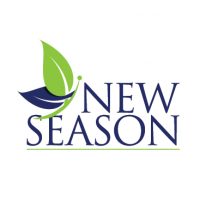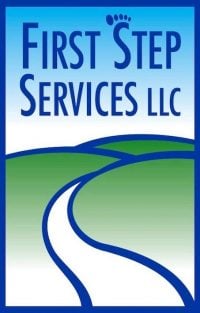Fellowship Health Resources - Raleigh
Drug Rehab Center in Raleigh, North Carolina
Fellowship Health Resources - Raleigh offers comprehensive care for addiction and mental health issues in the Raleigh, NC area, using evidence-based treatments and a range of services, and are committed to providing personalized and compassionate care with a focus on family support and education.
About This Raleigh, NC Facility
Fellowship Health Resources - Raleigh provides comprehensive care in the Raleigh, NC area for those suffering from addiction issues and mental health concerns. Their skilled clinicians use evidence-based treatments to create individualized care plans tailored to each client. As part of their comprehensive care, they offer a range of services such as aftercare support, detox, drug rehab, dual-diagnosis, intensive outpatient, and outpatient treatment. They are accredited by CARF and accept private health insurance.
Fellowship Health Resources - Raleigh is committed to providing personalized and compassionate care to those suffering from addiction and mental health issues. They are dedicated to treating these issues with compassion, respect, and understanding. Their team of professionals help clients by providing a safe and supportive space to heal and develop the necessary skills and resources to help them find lasting recovery. They also provide support and education to family members and loved ones so that they can understand more about the recovery process and provide the most comprehensive care for the entire family.
Genders
Ages
Modality
Additional
Accreditations

CARF
The Commission on Accreditation of Rehabilitation Facilities (CARF) is a non-profit organization that specifically accredits rehab organizations. Founded in 1966, CARF's, mission is to help service providers like rehab facilities maintain high standards of care.
Conditions and Issues Treated
Substance abuse refers to the intensive and inappropriate use of psychoactive substances. Psychoactive substances are those that affect brain function. These include illegal drugs, alcohol, and even the excessive use of prescription drugs. The overuse of psychoactive substances leads to severe physical or psychological dependence. It also affects the social life and relationships of the affected individual. Substance abuse is treatable.
The duration of treatment at Fellowship Health Resources - Raleigh in Raleigh can require weeks or even months depending on the severity of the condition as there is a risk of relapse. Treatment options include medications, counseling sessions, various types of behavioral therapy, and group therapy in different combinations.
Addiction to prescription opioid painkillers like oxycodone and hydrocodone, and illicit opioids such as heroin, leads to potentially life-threatening withdrawal symptoms when discontinued. Opioid addiction treatment typically involves an inpatient stay at facilities like Fellowship Health Resources - Raleigh to make sure they get through withdrawal safely. Treatment also includes comprehensive mental health counseling.
Conditions such as anxiety, depression, schizophrenia, bipolar disorder are part of mental illness. This may occur that opioid abuse and vice versa are induced by mental illness. Diagnosing a concurrent diagnosis or co-occurring condition at Fellowship Health Resources - Raleigh is essential to understand the addiction better.
Levels of Care Offered
This center offers a variety of custom treatment tailored to individual recovery. Currently available are Aftercare Support, Detox, Drug Rehab, Dual-Diagnosis, Intensive Outpatient, Outpatient, with additional therapies available as listed below.
Detox is the primary substance abuse treatment administered to a patient suffering from drug addiction. Detox helps patients in Raleigh, NC recover from drug-addicted through regular monitoring of medical professionals and temporary utilization medication, other techniques.
If you or someone you know suffers from a substance abuse problem, it is crucial to understand the different options available for treatment and seek help as early as possible. These days, detox centers offer several methods for drug and alcohol addiction rehabilitation and treatment.
An intensive outpatient program is a good option for someone in North Carolina with a milder or less severe addiction. An IOP may involve daily meetings at a treatment facility, along with personal counseling and peer meetings. Some IOP programs offer half-day treatment, while others offer full-day programs. Fellowship Health Resources - Raleigh‘s IOP is customized per individual.
Outpatient programs are the standard for addiction treatment. About 9 in 10 U.S. adolescents entering addiction treatment enroll in these programs, so you’re not alone in Raleigh, NC. Treatment is delivered in different settings – offices, clinics, and primary care clinics.
Facilities offer a variety of services, such as individual and group counseling and family therapy. During the sessions, you work with a team of experts that include: General physicians, Psychiatrists, Social Workers, and Psychologists. The main goals of outpatient recovery programs are to help addicted individuals reduce drug use and addictive behaviors, eventually becoming entirely sober.
Aftercare comprises services that help recovering addicts readjust to normal day-to-day North Carolina activities. It can last a year or even longer. Services include individual and family counseling, medications to reduce cravings, and treatment of psychiatric and other medical conditions. Aftercare support begins once you have completed earlier stages of treatment.
Fellowship Health Resources - Raleigh‘s Therapies & Programs
In addiction recovery at Fellowship Health Resources - Raleigh, therapy plays a significant role. This helps patients get to the root of their addiction and discover how the problems that contributed to their use can be handled better. Therapy can be performed in a group and one on one settings. The patient interacts with the therapist in a one-on-one atmosphere during individual therapy. This encourages them to reflect on the underlying addiction problems and develop ways to avoid potential future abuse.
Recovering from addiction involves recovering relationships as well. One of the most common areas of stress and damage during addiction is in intimate relationships. Couples therapy at Fellowship Health Resources - Raleigh can rebuild trust and joy that may have been damaged. Addiction involves everyone in the family, not only the addict.
Family roles can change in damaging ways that may require professional help to rebalance. Successful intimate relationships can decrease the chances for relapse by ensuring a healthy environment after rehab in Raleigh, NC.
Addiction and alcoholism affect the entire family. For this reason, family therapy is vital to a person’s recovery from addiction. In contrast to couples counseling, family therapy at Fellowship Health Resources - Raleigh may include siblings, children, parents, and other significant people in the recovering person’s life. Family support is one of the most important pillars of recovery.
Many people turn to drugs and alcohol as a way of processing trauma that has affected them in the past. Trauma can include abuse, neglect, the loss of a loved one and other unpleasant incidents. Trauma therapy at Fellowship Health Resources - Raleigh helps patients process trauma. It gives them the tools to deal with it in a healthier manner.
Dialectical behavioral therapy (DBT) is a type of Cognitive Behavioral Therapy that focuses on eliminating specific negative thoughts such as suicidal thoughts that can potentially lead to an individual inflicting self-harm. It is useful in the treatment of patients exhibiting uncontrollable emotions, intense mood swings, and borderline personality disorders.
The term “Dialectic” means the integration of opposites. In the substance abuse context, DBT refers to accepting the patient’s addiction and working to change their thoughts and behavior. It improves life skills such as controlling the intense emotions without reacting impulsively, resolving the interpersonal conflicts effectively, and promoting awareness about self and others.
Cognitive Behavioral Therapy (CBT) examines the relationship between a patient’s thoughts, feelings and behaviors. Fellowship Health Resources - Raleigh aims to establish a healthy response to thoughts and feelings as an alternative to turning to drugs and alcohol. It also promotes healthy communication between addicts and those around them. It is and effective therapy for people suffering with all types of addictions.
Life skills pertain to the skill sets a person should possess to become successful in life. Examples are time management, budgeting, and social abilities. Life skills therapy highlights the fact that addiction recovery is more than just a person’s ability to go through their day-to-day without resorting to substance use in Raleigh, NC once they leave the facility.
The recovery technique used by Alcoholics Anonymous is the 12 step program, but it can relate to any form of addiction. The 12 steps that addicts must take on the road to recovery are explained. Measures include acknowledging that you have a problem and agreeing to turn around your life. The curriculum, instructed by Fellowship Health Resources - Raleigh, also requires a belief in a greater power and making amends to others.
Contingency Management (CM), also called motivational incentives, is a type of pure behavioral therapy. It’s based on the idea that behavior is shaped, motivated, or controlled by its outcomes. CM is a clinical application at Fellowship Health Resources - Raleigh of operant conditioning, which helps clients eliminate unwanted behaviors by the use of positive and negative reinforcement.
Payment Options Accepted
For specific insurance or payment methods please contact us.
Is your insurance accepted?
Ask an expert, call (888) 674-0062
Additional Details
Specifics, location, and helpful extra information.
Raleigh, North Carolina 27612 Phone Number(919) 573-6520 Meta DetailsUpdated November 25, 2023
Staff Verified
What else do people call Fellowship Health Resources – Raleigh?
People have occasionally also searched for “Fellowship Health Resources in North Carolina”
Patient Reviews
There are no reviews yet. Be the first one to write one.
Raleigh, North Carolina Addiction Information
North Carolina ranks 29th in the nation for overall substance abuse. Many of the drugs abused in the state are illicit, and many of these are opioids. Prescription opioids are readily available due to the high rates of medical workers prescribing them. The number of prescriptions has increased tenfold since the 1980's. Opioid overdoses are the most common type of death in North Carolina.
Raleigh, NC has one of the highest rates of drug-related deaths in the country. 10% of Raleigh residents report current illicit drug use. The majority of overdose deaths occurred among people ages 35-54. A variety of different types of therapy are available in Raleigh, North Carolina. This includes individual therapy, group therapy, and family therapy.
Treatment in Nearby Cities
- Troy, NC (76.5 mi.)
- Hillsborough, NC (27.9 mi.)
- Apex, NC (12.8 mi.)
- Pilot Mountain, NC ( mi.)
- Knightdale, NC (12.2 mi.)
Centers near Fellowship Health Resources - Raleigh
The facility name, logo and brand are the property and registered trademarks of Fellowship Health Resources - Raleigh, and are being used for identification and informational purposes only. Use of these names, logos and brands shall not imply endorsement. RehabNow.org is not affiliated with or sponsored by Fellowship Health Resources - Raleigh.
